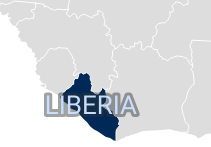Author:

Cecelia Cassell, Dean, Teachers College, University of Liberia
Cross-posted on ecdmeasure.org
Liberia is at a critical moment for early childhood education. According to the 2019 UNESCO Global Education Monitoring Report, 88 percent of Liberian children are enrolled in an ECE program at least one year before primary school entry. However, it is common for overage children to enter ECE programs; nearly 50 percent of pre-primary learners are 6 years of age or older.
Liberia’s National Inter-Sectoral Policy on ECD and National Inter-sectoral Committee on Early Childhood Development (ECD) have been in place since 2012, but implementation remains a challenge. There is currently no system for monitoring pre-primary learning outcomes and quality in Liberia.
In light of these challenges and new developments in the early childhood sector, Liberia joined the CPDMA task force to gather information on the prospects, challenges and recommendations on improving learning outcomes and teacher quality through using data. We are also eager to share information on the state of early childhood education in Liberia and learn from other countries in the Africa region.
We first identified a team to examine our pre-primary system and make a plan for data use, which is a partnership between the Ministry of Education and the University of Liberia.
Liberia’s Pre-Primary Measurement Team Members
- Cecelia Cassell, University of Liberia
- Jebbeh N. Gray, University of Liberia
- Gabriel L. Nelson, Bureau of Early Childhood, Ministry of Education
- Alphonso W. Wright, University of Liberia
- Kebeh Kennedy, Division EMIS, Bureau of Planning Research and Development, Ministry of Education
To inform our planning, our team has been answering a series of questions on the purposes of pre-primary data, what data already exist, and where there are gaps.
Who needs data on pre-primary education in Liberia? Defining our purpose
We identified parents, inspectors and policy makers as the key audiences for ECE data. A secondary but important audience is donors and implementing partners. Some of the questions we have heard these groups asking are:
- How has ECE improved in Liberia since the introduction of an ECE policy?
- How do we know that children are ready for school?
- What are cultural specific practices unique to ECE in Liberia?
- What should an early childhood environment look like?
- To what extent are teaching resources available for the different types of ECE programs (school-based, community-based and home-based)?
- What is the availability of trained ECE teachers and caregivers by qualifications and experiences?
- Are their adequate facilities to compensate for the high demand for ECD services in urban and rural Liberia?
Based on the mapping of stakeholders and research questions, we came up with the following purpose statement for ECE data in Liberia:
To generate current and reliable data that will inform evidence based policy, planning and implementation of programs in the ECE sub-Sector.
To be used to plan and focus resources to most needed target groups for optimal results in terms of increasing access, improving quality, and enhancing equity.
What is our current data landscape?
Liberia has a national ECE curriculum, professional development framework, and guidelines for opening an ECE school. These documents provide an overarching framework for our ECE programs.
The Ministry of Education (MOE) is the custodian of data in early childhood, along with the Ministry of Health. The main sources of ECE data in Liberia are the Education Management Information System (EMIS), which provides information on enrollment, type of classroom, class size, number of teachers, and qualifications of teachers; World Bank’s Systems Approach for Better Education Results (SABER), which provides information about ECE policies; and Oxford Policy Management, who conducted a study of early learning quality and outcomes as part of the World Bank Early Learning Partnerships Systems Research Program. The MOE is also developing a checklist for measuring learning outcomes and quality in ECE.
When we mapped the users of ECE data in Liberia, we found that policymakers are the group most likely to use data to make decisions, primarily to plan teacher professional development. Teachers, parents, school administrators, and district education officers may have access to data that is online, but availability is limited and they typically do not use data.
Our next steps
At the end of May, the Liberian Ministry of Education held a week-long workshop to identify priority issues for ECE. They identified nine priority areas, including several areas where data use will play a key role. These include teacher development and placement, the impact of school meals on ECE enrollment and retention, and monitoring and supervision of ECE schools.
We identified changing classroom instruction as the area where there is highest leverage for change in behavior due to ECE data. Liberia has a new pre-primary curriculum, which emphasizes play-based and child-centered methods, and it was recently rolled-out in one of the 15 teacher training institutions. It is also being used to train in-service teachers. Nevertheless, the OPM/ELP report found that most teachers are engaging in rote-teaching methods rather than play-based. Therefore, ECE teachers will need support in transitioning to play-based methods. There will be a need to monitor whether they are effective. The Ministry of Education is also now thinking about using the ECE curriculum to introduce a “C” certificate teaching training program(s) in the country. Between now and January 2020, our taskforce intends to develop and pilot a project to address these needs. We welcome input from CPDMA members as we embark on this journey!
